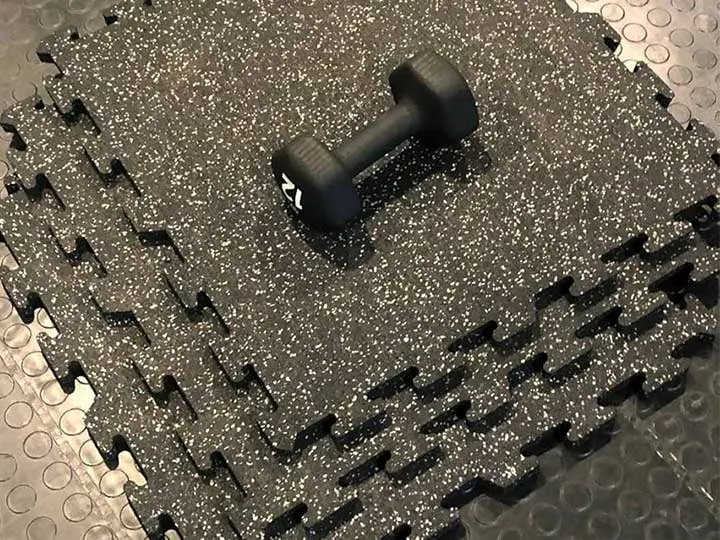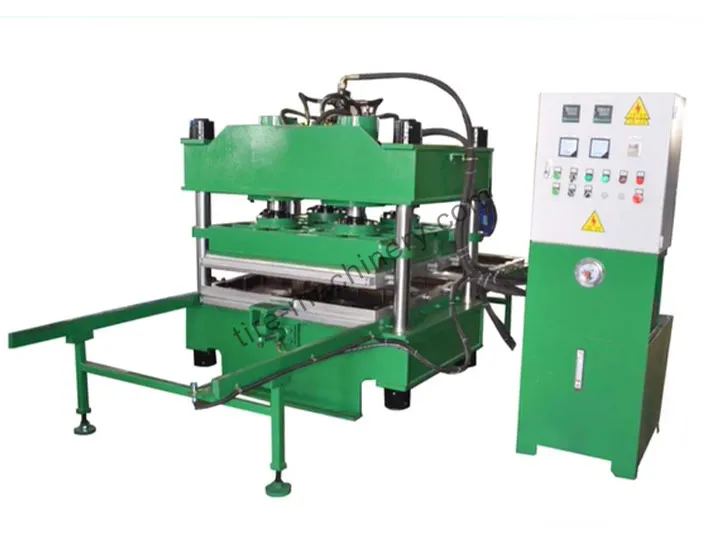From Gyms to Factories: Unlocking High Returns with Tire Recycling for Rubber Flooring
This article explores the profitable market of tire recycling for rubber flooring. It details the high demand for rubber tiles in gyms and factories due to their safety and durability. The post breaks down the strict raw material requirements for producing high-quality tiles—specifically, the need for a precise mix of different granule sizes and high purity. It then explains how our advanced equipment meets these standards.

In specific environments like gyms, factory workshops, and livestock farms, traditional flooring like concrete or ceramic tiles falls short. They are either too hard, too slippery, or not durable enough, creating safety hazards for people and equipment. This gap has created a rapidly growing demand for a superior alternative: recycled rubber tiles.
For entrepreneurs in the tire recycling industry, this isn’t just a trend; it’s a high-value market. This article explores the potential of the rubber flooring market and explains how to produce the specific, high-quality raw materials required to dominate this sector.
Why Rubber Tile is a High-Growth Market: The 4 Core Advantages
The demand for recycled rubber tiles is driven by their clear performance benefits over traditional materials.
- Superior Safety & Protection: With excellent impact absorption, gym flooring material made from rubber protects expensive equipment like dumbbells and, more importantly, reduces the risk of injury from slips and falls.
- Extreme Durability & Load Bearing: This is the best material for factory flooring because it can withstand the constant traffic of heavy machinery like forklifts and high foot traffic, lasting far longer than other materials.
- Excellent Noise & Vibration Damping: Rubber naturally absorbs noise and vibration, creating a quieter and more comfortable environment in industrial and commercial settings.
- Easy Maintenance & Slip Resistance: The surface is inherently slip-resistant, even when wet, and is simple to clean, significantly lowering long-term maintenance costs.
Rubber Tile Making Machine
The Technical Key: Quality Requirements for Premium Rubber Tiles
To enter the lucrative rubber flooring manufacturing sector, you must produce raw material that meets stringent quality standards. This is where the true value of your tire recycling for rubber flooring operation is defined.
The Golden Ratio of Granules and Powder
High-end rubber tiles are not made from a single type of rubber particle. They use a precise blend:
- Structural Granules: Coarser rubber granules for tiles, typically 1-3mm or 2-4mm, form the structural backbone of the tile.
- Binder & Filler Powder: A percentage of fine rubber powder for filler (e.g., 40-60 mesh) is added to increase density, improve bonding, and create a smooth, non-porous surface. This means your production line must be capable of producing multiple specifications simultaneously.
Purity is Key to Aesthetics & Performance
Why is purity important for rubber granules? Any contamination severely degrades the final product.
- Fiber: Residual nylon fiber creates a rough, uneven surface and weakens the tile’s structure.
- Steel: Tiny steel wire fragments can rust, creating blemishes, and can even pose a scratching hazard. Therefore, the industry demands high purity rubber granules, often with a 99.9% purity level.
How to Reliably Produce High-Quality Rubber Granules
What equipment is needed to produce rubber granules that meet these high standards? The answer lies in a system designed for precision, purity, and performance.
Flexible Screening for Multiple Outputs
Our systems are designed for versatility. The multi-layer crumb rubber screening machine integrated into our lines can be precisely configured to separate multiple grades of granules (e.g., 1-3mm, 3-5mm) and the required fine powder in a single pass. This “one-line, multiple-products” capability allows you to serve a diverse range of tile manufacturers. This process starts with a powerful tire shredder to break down the initial material.
Consistent Operation for Large Orders
The rubber tile market is a volume business. Manufacturers need suppliers who can deliver consistently. The heavy-duty design and superior core components (like our 5Cr6MnMo alloy rollers) of our tire grinding machines ensure your line can run stably for the long haul, giving you the confidence to take on any large order.
Your Path to Becoming a Key Supplier
As safety and durability standards continue to rise across commercial and industrial sectors, the market for high-quality rubber tiles is expanding rapidly. The key to seizing this opportunity is owning the advanced production capability to reliably and flexibly produce the high-purity, multi-spec rubber granules and powder the market demands. Our complete tire recycling lines provide exactly that.
Ready to become a core supplier to the booming tire recycling for rubber flooring market? Contact our experts today for a customized production line solution designed to achieve product diversification.

